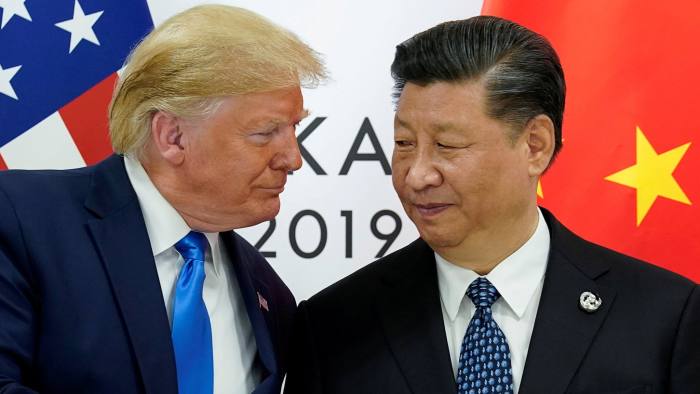US Cold War mentality and arms race are more dangerous than the virus

By
Zhang Junshe
A US FA-18 Hornet fighter jet flies past fighter jets and E-2C Hawkeyes during a routine training aboard US aircraft carrier Theodore Roosevelt in the South China Sea on March 31. Photo: AFP
Retired US Army Lieutenant General Thomas Spoehr recently co-wrote an article which contends that fiscal constraints from the coronavirus should not impinge on US defense spending whatsoever.
Defenders of US military spending are predictably among the first to seek immunity from future budget cuts despite domestic economic headwinds. This rationale stems from a long standing Cold War mentality and a policy focus on imagined enemies such as China and Russia.
At present, the US military is seeking to restore morale and confidence that has been shaken since the coronavirus emerged and challenged its combat readiness. A case in point was the recent removal of the USS Theodore Roosevelt’s captain Brett Crozier who was blamed for warning of coronavirus spreading through his ship.
The US’ obsession with hegemony is further demonstrated by the fact that amphibious assault ships and other vessels have kept meddling in the South China Sea during the outbreak. The moves aimed at flexing their muscles, adding uncertainties, and undermining regional peace through repeated provocations.
Even with challenges COVID-19 has brought to US shores, it is hard to see US wartime capabilities being seriously affected. The number of aircraft carriers, even if a few are unserviceable, is far greater than that of any other country.
The US military is the largest spender, more than several countries combined. Even modest reductions in funding will not reduce US troops’ equipment and operational procurements.
US military spending outlay in 2019 grew by 5.3 percent to $732 billion, almost two-fifths of global total military expenditures. Its year-on-year increase alone was equivalent to the entire annual military spending of Germany, according to a report published on April 27 by the think-tank Stockholm International Peace Research Institute.
But in the short term, the US competence to “police the world” is likely to be limited, as its overseas patrols, exercises, and joint drills have all suspended or scaled back. Its aircraft carriers, warships, guided-missile destroyers, amphibious sniper ships and littoral combat ships have some degree of infection or are preventingbattling against infections.
Once the epidemic is under control, the US will certainly continue fueling chaos in regional stability and pressuring its allies to contain China. The trend is already underway just as US military leaders continue to send warships to patrol the Asia-Pacific region to deter others – just as they ironically dismissed an aircraft captain.



